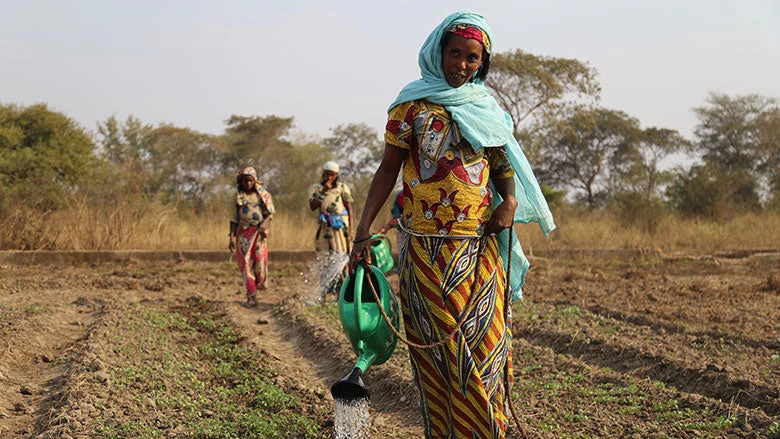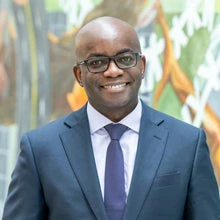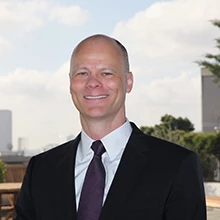For the world’s poorest people, COVID-19 has brought an unparalleled social and economic shock. And for those living in countries affected by fragility and conflict, the challenge is compounded : they are in the crosshairs of a pandemic that has increased poverty, while also still contending with the underlying causes and consequences of conflict.
According to UNOCHA, violent conflicts are at a 30-year high. Estimates indicate that up to two thirds of extreme poverty worldwide will be concentrated in fragile settings by 2030. And we are also experiencing the largest forced displacement crisis since World War II. Once the pandemic subsides, going back to the way things used to be is clearly not enough —especially not for countries and communities that are caught in an unprecedented confluence of challenges.
Our goal must therefore be more bold: a more sustainable, more inclusive and more resilient status quo. This requires taking a holistic approach that protects human capital, creates jobs and economic opportunities, tackles climate change, and enhances food security in the most vulnerable countries.
How would this play out on the ground? The World Bank has worked with partners for years to lay the foundation to bolster large scale recoveries through the International Development Association (IDA) — the World Bank’s fund for the poorest countries. Since the beginning of the pandemic, IDA’s response has reached $11.6 billion in commitments to Fragile and Conflict-Affected Situations (FCS), of which almost half are grants. Much of this is part of a larger, historic IDA19 commitment of $26 billion to FCS made in December 2019.
These targeted and tailored resources address underlying drivers of fragility, support institution-building, restore economic opportunities, emphasize inclusion of vulnerable populations like youth and women, and preserve human capital. For example, as Somalia and Sudan begin re-engaging with IDA, they are receiving critical resources to seize a historic opportunity of transitioning out of conflict and building resilience.
Today, ahead of a new IDA20 replenishment, our financing and expertise are focused on the immediate response while simultaneously keeping a keen eye on three key themes which are critical for a resilient and inclusive longer-term recovery.
Focus on the most vulnerable populations is critical
In fragile settings, COVID-19 has increased pressure on already-stressed health, social protection, and education systems —all of which are interconnected and crucial to building resilience. IDA funding supports communities as they address the impacts of COVID-19 while simultaneously building for the future.
To safeguard learning in times of crisis, for example, existing projects have been reworked and scaled up. In Nigeria, IDA’s EdoBest project has been expanded to include digital self-study packages sent to students through free, zero-rating internet access and WhatsApp, while in Niger, a $140 million investment is scaling up distance-learning programs. These investments keep educators and children in virtual classrooms and help preserve the human capital of youth to ensure they can seize future economic opportunities and jobs.
Similarly, grants for cash transfers in Yemen have been a lifeline for millions, filling a critical social welfare gap and immediate dire need, especially in the most food insecure households. This helps avoid both famine, malnutrition and stunting which again contribute to the health and economic prospects of the recipients and the economies into the future. A regional disease surveillance systems project set up after the major Ebola outbreak in West Africa five years ago has now ensured that sub-Saharan Africa is much better prepared in the face of COVID-19.
An additional $2.2 billion IDA investment in refugees and host communities has helped support vulnerable populations, with operations across 14 countries. The Refugees and Host Communities Support Project in Chad, for example, enables the country’s response to COVID-19 by investing in health infrastructure and the recruitment of medical staff, but also provides cash transfers to refugees and host community populations to counter the economic impact of the health crisis.
Our partnership with the United Nations High Commissioner for Refugees (UNHCR) complements essential humanitarian relief with the longer-term development assistance needed to create economic opportunities, strengthen livelihoods, and put in place more inclusive policies in host countries to support refugees.
Jobs and economic opportunity can drive stability and social cohesion
Around 23 million more people in FCS fell into extreme poverty in 2020 as a result of COVID-19. And the impacts of conflict have not slowed—despite lockdowns and travel restrictions, conflict-induced displacement within countries has continued to rise even as other migration slowed. For example, in Burkina Faso the number of internally displaced persons in February 2020 was seven times higher than a year earlier — and one year later, it has increased by another 46%.
In fragile settings, where the local private sector provides the vast majority of jobs, the availability of inclusive economic opportunities for all populations is critical to a sense of hope , stability, social cohesion and ultimately peace. In low income and fragile markets, the IDA Private Sector Window is focused on promoting investment and preserving livelihoods. In Haiti, for example, it is helping one of the country’s leading microfinance institutions extend financing to small and medium enterprises and agribusinesses.
IDA invests in both public and private sector pathways to ensure no one is left behind. For example, in Afghanistan—where women’s participation in public life holds the keys for a more inclusive and prosperous future—the TAGHIR (Change) project is facilitating women's entrance into the civil service, so that they can be full participants in their nation’s development.
Climate change and food insecurity must be addressed
Climate change and climate-related shocks disproportionately affect the poorest and most vulnerable. And the linkages between climate, conflict, and forced displacement are particularly evident in areas like the Sahel , where IDA is protecting pastoral systems and helping manage conflict.
Shocks from climate change, coupled with the many impacts of the pandemic, have exacerbated hunger. Eleven of the 12 anticipated acute food insecurity “hotspots” over the next 12 months—Afghanistan, Burkina Faso, Democratic Republic of Congo, Haiti, Niger, Nigeria, Somalia, South Sudan, Sudan, Yemen, and Zimbabwe—are classified as FCS.
However, the fact that all these countries are also served by IDA presents a real opportunity to use early investments to prevent and mitigate food crises. For example, in Somalia we are investing $137 million to support the recovery of livelihoods and infrastructure in flood- and drought-affected areas, while building long-term resilience to COVID-19 and the recent locust outbreak that have threatened food security.
While the challenges in countries affected by fragility and conflict are immense, the current crisis offers an opportunity for IDA to both meet the urgent needs of today while also keeping the foot on the pedal to ensure progress on the longer-term agenda of laying the foundations for peace, stability, and prosperity.
The blog is part of a series on ways to ensure a resilient recovery from COVID-19 in the world’s poorest countries. For the latest, follow @WBG_IDA and #IDAWorks.
RELATED
The World Bank Group’s Response to the COVID-19 (coronavirus) Pandemic




Join the Conversation